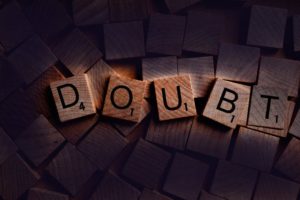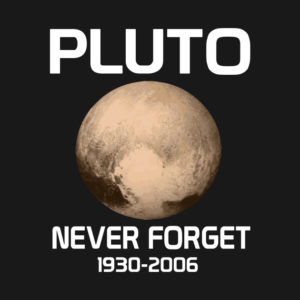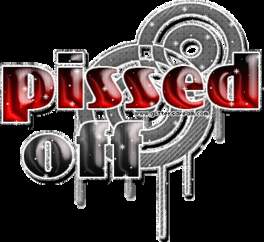It is often associated with indecision, hesitancy, uncertainty, and other human foibles that signal less-than-adequate preparation. Doubt is often seen as an impediment to moving forward, getting the job done, and following through. All usually highly appreciated accomplishments.
Doubt, by its very nature, I see as associated with beliefs. I can interact with a statement that you or anyone else believes to be true from anywhere along a continuum from total doubt (it can never be true!) to blind faith (it’s absolutely true).
I believe most of our feelings about statements made in day-to-day conversation lie somewhere mid-range between doubt and faith, mostly because it’s not really important to us whether the statement is accurate or not.
But then there are positions that are hard-wired into us.
They are frequently rules of life bestowed upon us in our youth.
- One should finish all the food on one’s plate.
- One should behave politely to one’s elders.
- Faith in God will give you everlasting salvation.
- People who don’t look like us are suspect and to be feared.
- Winning is good (and its ancillary: second place is losing).
I suspect that you, dear reader, have some polar feelings about those statements—some funny, some not. Some may be so locked in that you blindly think they’re true. Others are easier to doubt.
Can you see that where along the continuum your feelings fall can be dictated by your upbringing, education, and life experiences? That point is, in most cases, not a choice at all but a learned response.
We were told to “trust science” throughout the Covid pandemic. But what happens when science proves itself inaccurate? Remember the following ‘scientific’ facts from our not-so-distant human history?
The earth is flat.
Humans are the only species on Earth.
The heavenly bodies we see at night revolve around the Earth.
These were all touted as scientific fact back in their days.
But science is in the business of disproving itself, thank goodness!
Brave adventurers, innovators, and counter-journalists challenge the ‘facts’ everyone has total faith in and voila! New discoveries. New outlooks. New theories.
Are we so locked into our myopic views of science today that we think “This is it! We’re done!”? That everything we know is accurate and unquestionable?
Of course not. Pluto may yet be a planet (poor guy was demoted several years ago by “science”). Pure science, casting faith in their own knowledge aside, is charging full speed ahead to disprove everything in hopes of discovering new interpretations.
Science is in the business of doubting.
If it’s good enough for world-renowned scientists to routinely doubt what they know, then how can I have so much blind faith that everything I know is how it really is?
Because I’m trained that way. With no forethought or presence of mind, I will likely accept every ‘fact’ I have carried with me since my childhood. Why would I doubt that finishing everything on my plate is good for me? (Mom and Dad perpetually drove that into my thick hide.) “Think of the starving children in (insert country here—I was told China). Why would I doubt this compassionate global sentiment? Maybe because today I eat too much to maintain a healthy weight? But to get there, I have to doubt the original theory, at least temporarily, to discover new data.
And how could I doubt that Pluto is a planet when my 6th-grade science teacher AND parents drove that into me (Mercury, Venus, Earth, Mars, Jupiter, Saturn, Uranus, Neptune, PLUTO!)? (Did you sing that as you read it?)
I never had any reason to doubt that. But some physicists did, and the world’s recent perception of Pluto at least gives it an identity crisis!
If I never doubt any of my premises, theories, rules of life, or locked-in preuestjudices, then I believe I cannot progress. And I continually want to progress.
Since “change is the only constant,” then doubting keeps me always on the lookout for new theories, premises, and data. And doubt is the foundation of presence.





